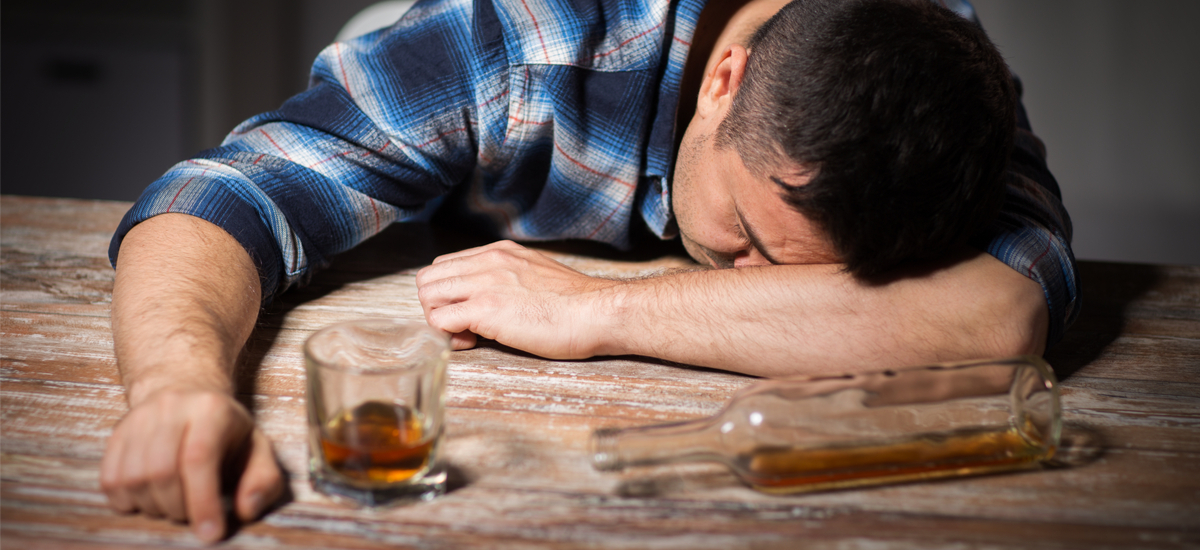Relapse
Relapse: A Chance to Re-evaluate and Re-emerge
Table of Contents
If you have suffered the painful, destructive consequences of a drug or an alcohol addiction, you may know about the difficulty of relapse. It is a common occurrence for people in recovery to return to harmful patterns of drinking and drug use.
When it occurs, a relapse can create a sense of frustration, shame and futility. You’ve put in a lot of work — during and after a relapse, that work can feel pointless.
In these moments, it is important to remember this: even the majority of people who eventually achieve complete abstinence from drug or alcohol use have at least one relapse during their recovery.
Relapse allows you to understand what has been successful so far, and it gives you the chance to re-evaluate the aspects of your recovery that need to change to ensure long-term and sustainable health. So what does it mean to relapse in the context of your addiction?
Why does relapse happen? How can you prevent it? As you work to understand what caused your return to drug or alcohol use, it may help you to understand the concept of relapse within a broader context.
Learn how we can help you, your loved one or colleague
What Is A Relapse?
A relapse is a return to drug or alcohol usage after a period of abstinence. It is a common feature of the recovery process of most people who have a drug or alcohol addiction.
They happen more frequently for individuals who are early in the recovery process, though even people with long-term recovery experience them. For some individuals in recovery, a relapse can be quite brief and can be immediately dealt with; for others, a stubborn pattern of drug and alcohol usage can re-emerge, requiring more extensive support.
Addiction as a Chronic Condition
A relapse is easier to understand when you think of addiction as a chronic condition. Drug and alcohol addiction share features with many other long-term illnesses, such diabetes, asthma or high blood pressure.
All of these conditions produce long-term effects. They require long-term management, since a chronic disease is never “cured.” Addiction does not work the same way as appendicitis or a kidney infection does, where only a single intervention (such as a surgery or a course of antibiotics) is required for treatment.
When it comes to understanding relapse rates, it is important to remember this characteristic of chronic illness. Between 40% and 60% of people with drug or alcohol addiction will experience a relapse.
However, this is a rate that is about the same as — or sometimes even lower than — the rates of relapse for other chronic health conditions.
For example, when a person with high blood pressure gets treated with a blood pressure medication and is counseled to eat foods lower end fat and salt, that person may still show high blood pressure readings more than 60% of the time that they attend medical visits.

The Importance of Self-Management
Whether the disease is asthma, high blood pressure, diabetes or addiction, there is one major component of success in treating chronic conditions: learning and maintaining good self- management.
Dealing with an addiction means that you’ll have to become an expert on you. You will need to know your tendencies, your strengths, your vulnerabilities and your goals. A relapse is an opportunity to revisit how well you know these aspects of yourself.
When a relapse occurs in a chronic condition like addiction, it is not a sign of failure. What it does mean is that you must re-evaluate how you are managing your condition.
You can do this with the help of your support system here at Emerald Isle Health and Wellness, and together you will be able to figure out how to get back on course.
In order to engage in self-management, you need to have knowledge and confidence that you can understand the problems that you face and devise a strategy to deal with them.
This is called self-efficacy, and building self-efficacy is a central goal of our treatment programs for drug and alcohol addiction.
Self-efficacy tends to help prevent relapses, and the more capable people feel of managing their own conditions, the more long-term sobriety they tend to achieve.
Relapse Prevention Strategies
After you have relapsed, you can get back on track. It helps to know that this is a situation faced by more than half of the people in the country who deal with addiction.
You also know that experts in addiction treat relapse as a normal part of recovery, one that can be effectively managed. You know it is not a sign of failure.
The 1920s entertainer Will Rogers had a famous quote: “if you find yourself in a hole, stop digging.” The most important first step is to cease your usage as soon as possible.
This step is not as intuitive as you might think. When a person is in active addiction, the brain is hijacked. It will not function in rational ways that support your health or your recovery; instead, it will act to advance your addiction.
Patterns of denial, rationalization and risky behavior can easily re-emerge. Stopping your usage allows you to “take a timeout” to regather and reassess your situation.
The sooner you are able to return to the healthy patterns that you have previously established, the smaller the chances are that the relapse will create long-term damage.
People who are able to achieve even a few weeks of abstinence after a relapse tend to experience longer stretches of sobriety in the future than those who do not return to abstinence after the initial relapse.
At the very least, it will be important to try to reduce consumption, even as you try to work toward total abstinence.
Immediate Placement
for Outpatient Rehab
Look For Help And Use It
Relapse also allows you to seek additional help. Our addiction medicine specialists and our therapists can provide you the professional help you need to restore your health.
This is especially true if your relapse has led to a return of physical withdrawal symptoms. A return of withdrawal is likely if you have a history of alcohol, opioid or benzodiazepine addiction.
In these cases, your treatment will need to begin by undergoing medical detox. These types of withdrawal can be dangerous, and in the case of alcohol and benzodiazepines, even life-threatening.
If you have not been active in our alumni or continuing care programs you can reconnect with the team who is familiar with your situation. You can use that to your benefit, or potentially find another treatment option such as our intensive outpatient rehab program.
If your relapse is less severe, you may need treatment in a less acute setting, such as outpatient care. In addition to seeking immediate treatment, we will also want to work with you to form a plan for continuing care.
The most common way people who have drug or alcohol addictions engage in continuing care is through the use of mutual help groups like Alcoholics Anonymous or Narcotics Anonymous.
Participation in these groups helps you connect with others who have struggled with relapse before. Participants in these programs can provide valuable insights into the process of getting back on track.
Involvement with 12 step groups can help you establish personal guidelines that can help you maintain sobriety.

Know Your Triggers
When you have returned to drug or alcohol use, it’s important to know what caused the return. Like a “Monday morning quarterback”, you can analyze the factors that led to your relapse.
In order to prevent it in the future, you’ll need to understand the factors that make you more likely
to use drugs or alcohol.
Each person has a set of triggers, but common ones include:
- high levels of daily stress
- traumatic or highly stressful events
- being around people who use your problematic substances
- being in environments that activate thoughts of use
- engaging in activities that trigger thoughts of use
Many people in long-term recovery refer to these last three points as “people, places and things.”
They also also use the acronym HALT to know the emotional states that make them more prone to use: Hungry, Angry, Lonely and Tired.
These feelings often precede a return to drug use; if you’re feeling them, it’s important to know that you could be vulnerable to use and devise a strategy to address this sensitive time.
Respond to Someone Else’s Relapse
What if you need to respond to someone else’s relapse? Mutual help groups can also assist people affected by the substance abuse disorder of others.
These groups include Al-Anon, Narc-Anon, Adult Children of Alcoholics, and many other groups. Family therapy, couples counseling or other therapy may be helpful in understanding how to manage your own emotions as your loved one works through relapse.
Immediate Placement in
Addiction Treatment
Work Through Relapse at Emerald Isle
Now that you’ve understood how relapse works, you know that it is not a sign of failure.
It is an opportunity to revisit your approach, and to seek the support you need. If you need help with effectively dealing with a return to drug or alcohol use, our support staff is here to help you.
We know the pain a relapse can cause, and we can help you as you work to get back on track.
Give us a call, and we can help you regain your recovery.








